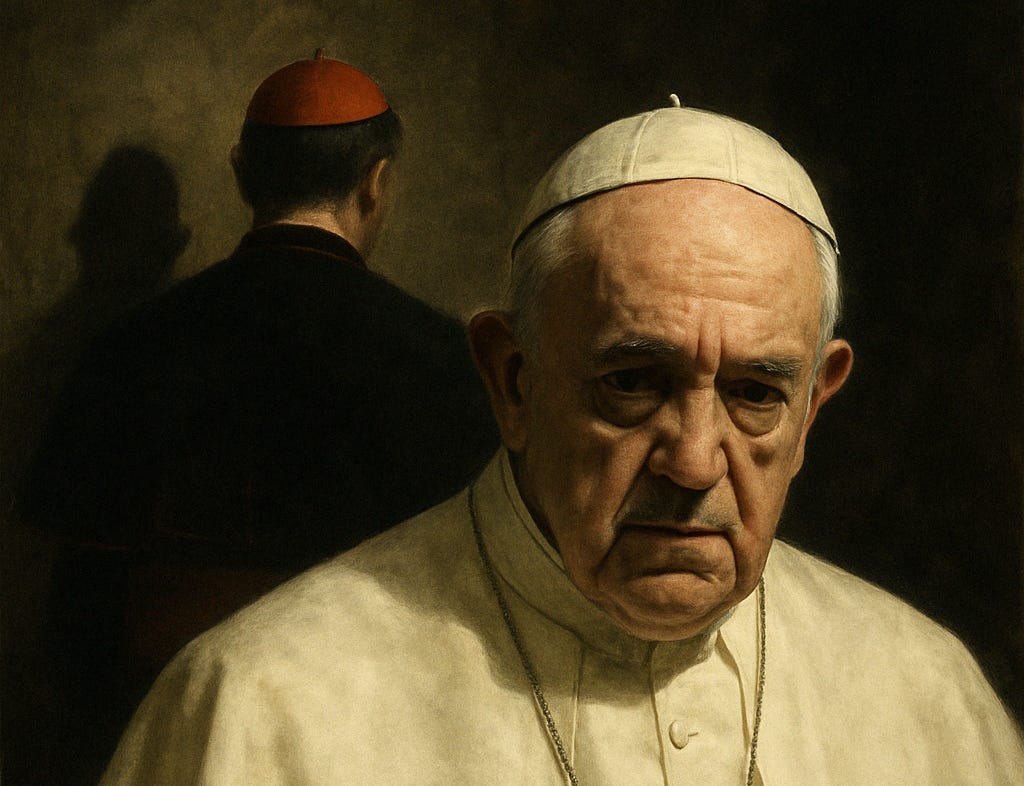The Pontiff Archetype (III): The Pope and the Shadow
Enemies, Scandals, and the Silent War Behind the Golden Walls
Francis was a light to millions.
But where there is light, there is shadow.
A dense one, old, with a pressed cassock and a diplomatic smile.
Because his greatest battle wasn’t with the outside world. It was with the ghosts haunting his own house.
While he spoke of love for one’s neighbor and a poor Church for the poor, many inside the Vatican were already sharpening their knives. Not with shouting or headlines. With something worse: silent resistance. Structural indifference. The elegant conspiracy of those who’ve sat in power for decades and don’t plan to give up even half a seat.
From day one, he made people uncomfortable.
He came from the end of the world, spoke without jargon, skipped formalities. He’d rather chat with refugees than lead a mass wrapped in incense and protocol. For the most conservative wing, that wasn’t humility. It was a threat. They eyed him with suspicion, accused him between the lines, treated him like he was “too soft.” And if there’s one thing the Vatican doesn’t forgive… it’s someone coming to talk about tenderness instead of control.
But the shadow didn’t only come in the shape of enemies. It also came in the form of disgusting truths.
Throughout his papacy, the scandals never stopped. Abuse. Cover-ups. Corruption. Francis did what he could: he apologized, embraced victims, promised to clean house. But the rot was old, and it ran deep. Sometimes, he even had to swallow decisions that reeked. Because in an infested house, opening windows isn’t enough.
You have to tear down walls—and he couldn’t always manage that.
And this is where his figure becomes painfully human: the man who tried to clean what was already decayed. The leader who, without having created the mess, had to carry it. And although he didn’t achieve all he promised, at least he didn’t look away. He didn’t turn a blind eye.
He didn’t say, “nothing to see here.”
It didn’t blind or deliver miracles in high definition.
It was a flickering light, at times exhausted, that stayed lit even while everything around it smelled of mildew.
And that’s what makes him unforgettable: not his sanctity, but his shadow. Because true leaders aren’t the ones who believe themselves pure—but the ones who dare to look at the mud without losing their humanity.
Francis wasn’t a superhero. He was a real man, in the middle of an institution full of masks.
And that’s why his figure doesn’t fade. Because even if he didn’t defeat all his demons, at least he didn’t bow to them.
Does this burn a little to read?
Good. That means you’re awake.
Don’t let them tell you the story with incense and Photoshop. Share it with those who know that power without conscience is just another form of darkness.




